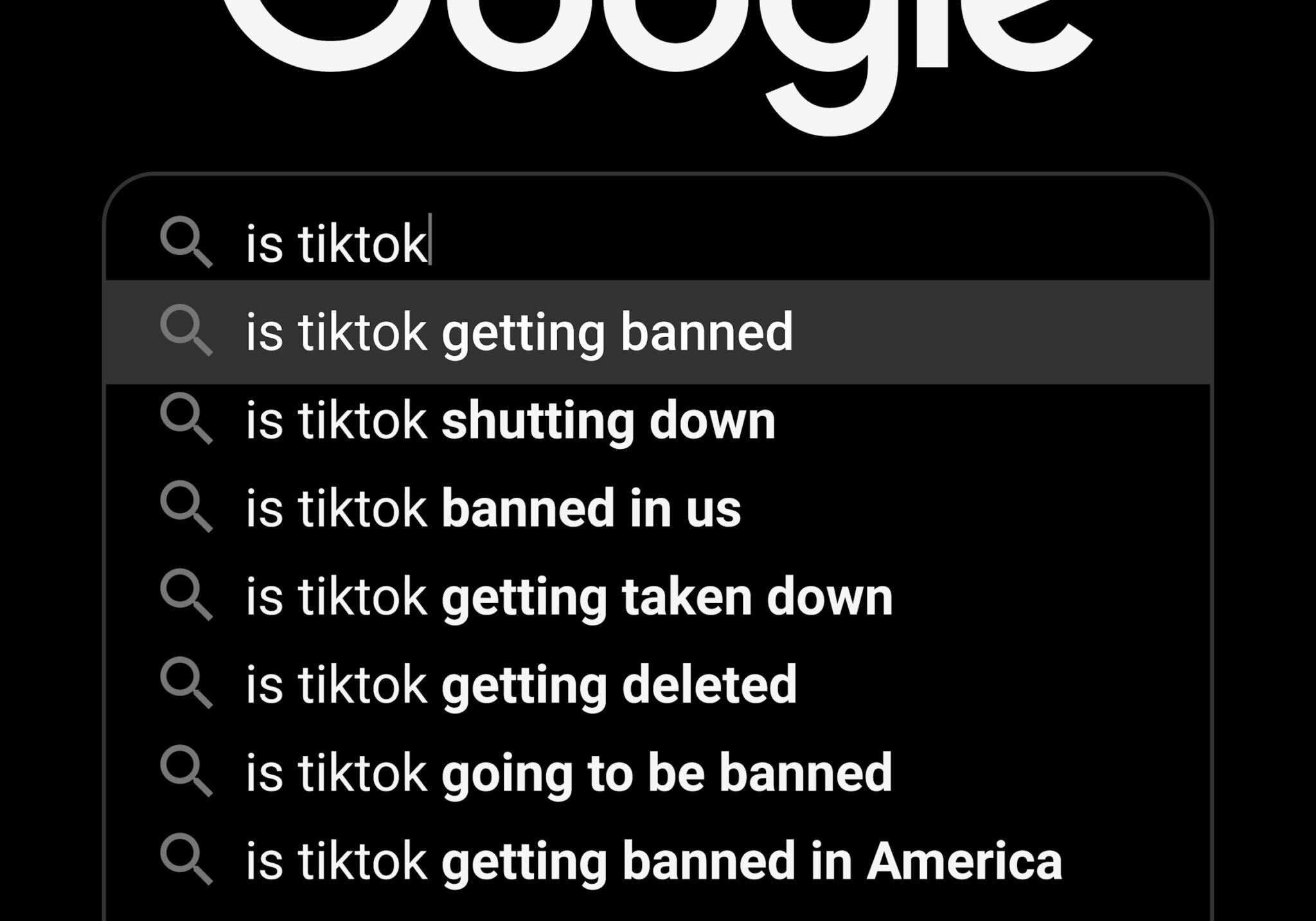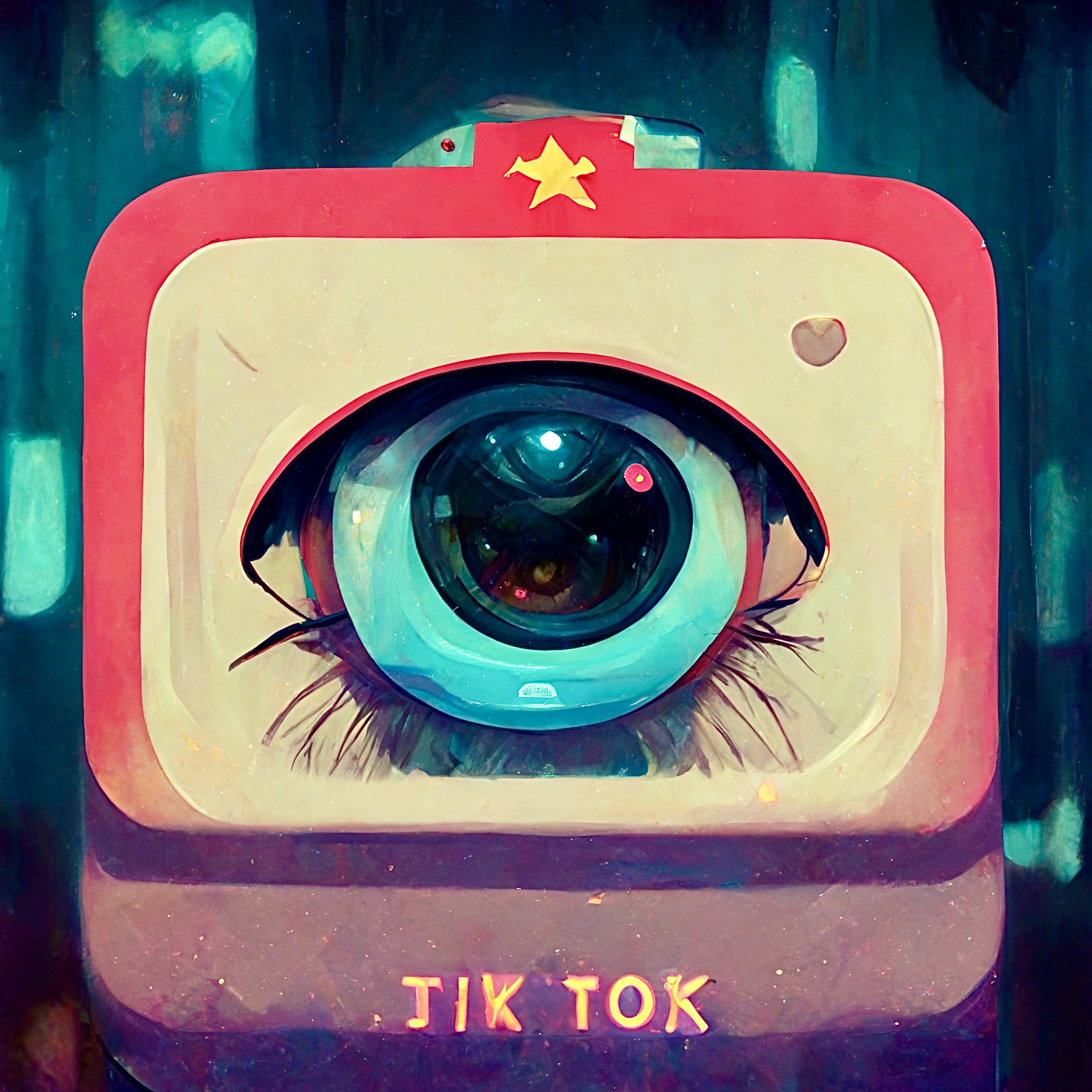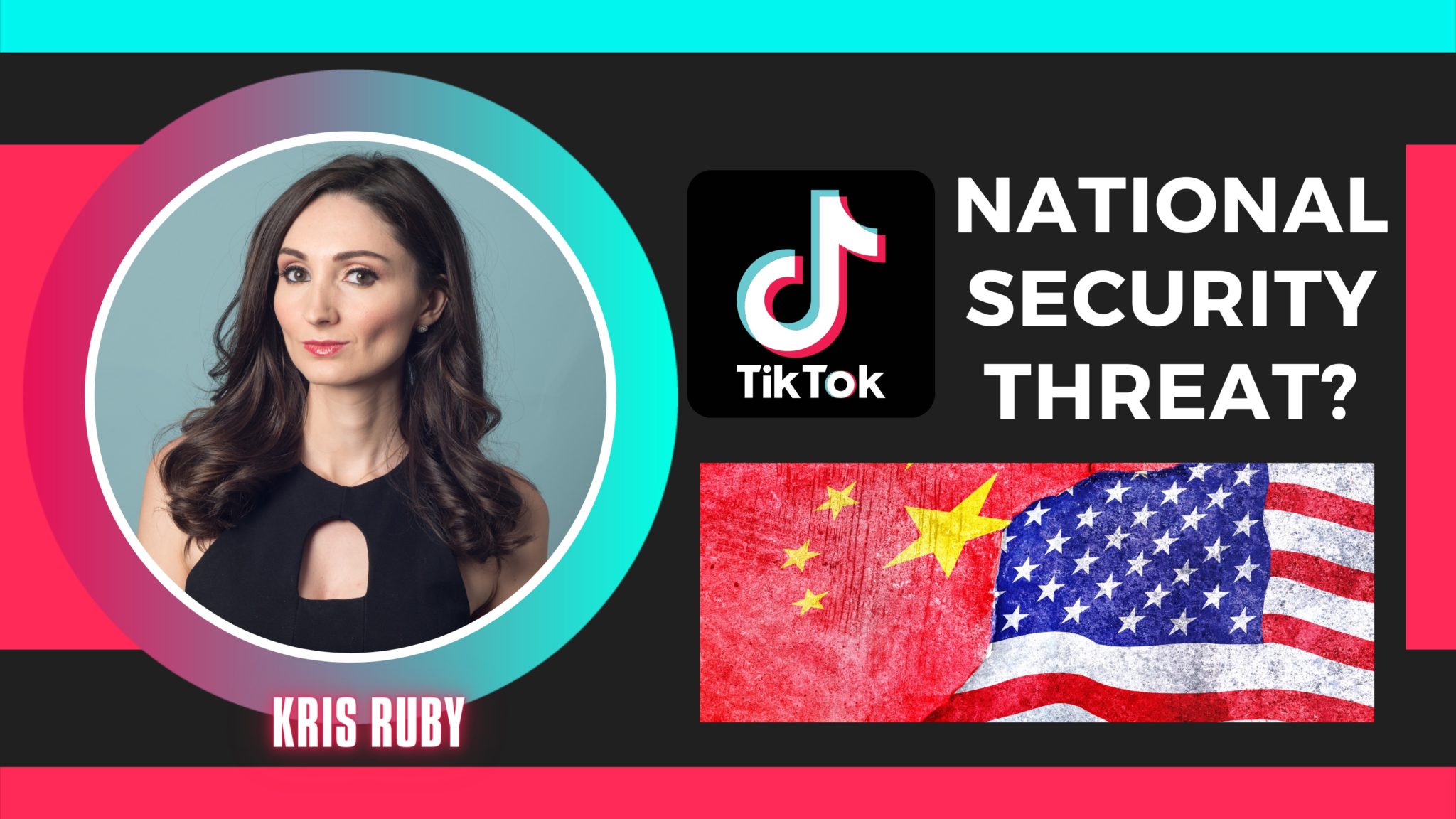|
Getting your Trinity Audio player ready...
|
TIKTOK: NATIONAL SECURITY THREAT

Why is TikTok potentially being banned in America?
Recently, the FCC asked Apple & Google to remove the TikTok app from their stores.
TikTok is currently under fire from U.S. Senators over ties with the Chinese government.
In a recent update to the TOS, the company stated they plan to collect “faceprints and voiceprints” from users.
Questions remain over if this information will be shared with third parties and how long it will be retained.
Doctors have turned to the popular social media app TikTok to share educational content and spread awareness about medical topics.
Thousands of people enjoy watching TikTok content posted by physicians.
But others claim they find the content unprofessional.
The TikTok app is quickly taking over Google search for millennials as the go-to search engine of choice.
Brands have immediately recognized TikTok as a brand-new marketing channel and flooded the platform with marketing material hoping to cash in. Today, you can find the world’s largest brands on the platform alongside local small businesses building their online presence with viral TikTok videos.
Our data can be weaponized by political opponents to influence public discourse in America and influence U.S. elections.
Doctors on TikTok & the Medical TikTok Controversy:
Social media is turning many doctors, nurses, and other medical professionals into social media stars. But recently doctors have come under fire during the pandemic for posting dancing videos in hospitals where patients are dying of COVID-19. Should Doctors be Dancing on TikTok during the COVID-19 Pandemic?
On the one hand, people can’t get in to see their parents who are sick with COVID-19 and on the other they see doctors dancing in the hallways of hospitals.
Is this really that sympathetic to someone’s needs who may be grieving or losing a loved one during the pandemic?
Are doctors the new social media influencers during the pandemic? Social Media Strategist Kris Ruby recently discussed this topic with Randy Rauch on The Roach Show.
Everything is vying for attention on social media, but should that attention be limited during a pandemic to non-hospital corridors?
Is this harmless Tik Tok video actually a way for other people from external governments to see what’s going on with patients in The United States?
Some Doctor’s quest for TikTok fame poses two risks:
1) National security threat.
2) Lack of empathy for the family members of Covid-19 patients.
Doctors and nurses are going viral on TikTok. But should nurses and medical doctors be dancing during a pandemic?
At first glance, this may sound like a harmless social media story. But it’s not.
The U.S. Army Followed the Pentagon’s Guidance and Bans Chinese-Owned TikTok App because it is considered a security threat.
READ: Troops’ use of TikTok may be a national security threat, FCC commissioner says
Lawmakers have asked for a national security review of the app. But why have U.S. intelligence officials not been asked to investigate whether TikTok usage by medical professionals represents a national security risk to the United States?
If TikTok poses a cybersecurity threat, what makes you think it doesn’t pose the very same security threat when it comes to patient data and access to records?
Doctors have access to log into patient portals and records on their phones. They are now doing telemedicine and Telehealth on their phones, too, with recently lifted restrictions.
What makes you think the Chinese government can’t view this medical information?
Why have U.S. intelligence officials not been asked to investigate whether TikTok usage by medical professionals represents a national security risk to The United States?
Dancing During Coronavirus Pandemic. A Good Idea?
Our military is not supposed to be using TikTok, and yet they are anyway, which shows a lack of respect for our institutions.
Should physicians be on TikTok?
Where do you draw the line between helpful medical content and potentially breaching patient privacy?
In this podcast episode on TikTok for Medical Practices, we discuss:
- How medical practices and physicians are using TikTok
- The potential harm of Doctors using TikTok
- Legal consequences of medical professionals using TikTok
- Why every medical professional must read their employment contract before posting on social media platforms like TikTok or giving media interviews during the pandemic
- Is physician credibility strengthened or diminished by TikTok usage?
- Can TikTok negatively impact the reputation of your private practice?
- Why focusing on how to go viral on TikTok during the pandemic could be the downfall of your medical career
- How to make sure you aren’t violating your hospital employment contract
- Does TikTok usage violate the publics trust in medical professionals during the pandemic?
- Does being qualified to practice medicine mean you are also qualified to practice social media marketing? Or are physicians misusing the platform with a lack of proper training and respect for qualified marketing professionals?
TIKTOK BAN:
TikTok poses national security concerns and risks getting banned in the U.S. market. As a preventive measure, many TikTok influencers are scrambling to rebuild their audience on Instagram and other social media platforms
INDUS NEWS SPECIAL: PENDING TIKTOK BAN IN THE UNITED STATES
- If there is a security concern—-is there any other way to deal with this other than banning TikTok?
- Are the only apps that have a place in the U.S. market outside of ones that are owned by U.S. corporations?
- President Donald Trump wanted to ban TikTok in the U.S. Is Donald Trump paving the way for an Internet that is more controlled?
- Did Trump have other reasons for wanting to ban TikTok? For example, the supposed hacking of Trump’s Oklahoma rally by TikTok users?
Should you delete TikTok from your phone?
Current privacy concerns related to TikTok
Is TikTok safe?
Yes, TikTok is still unsafe. Here’s why:
TikTok is a social media video-sharing app similar to Snapchat and Instagram. TikTok was recently sued over the deaths of two young girls in a viral blackout challenge. Privacy concerns remain top of mind pertaining to how much data TikTok collects from user devices in the US.
TikTok and WeChat collect extensive data on their users, and the primary American concern is that the Chinese government will be able to access this data and leverage it for blackmail against U.S. citizens. U.S. government officials also worry the app censors political speech and could be used to spread misinformation.
Politicians call for stricter data control on TikTok to protect social media platform users from foreign influence.
U.S. Senators recently asked The FTC to Investigate TikTok for Deceptive Conduct Regarding Chinese Access to U.S. User Data.
How valuable is the information gained from TikTok?
Biometric data is incredibly valuable and important, including keystroke biometric data.
Is TikTok a biometric search engine for facial recognition disguised as a social media platform? That is the million-dollar question. We have not seen such an egregious collection of biometric data and that is what is most concerning.
Biometric facial data can be leveraged by law enforcement to find killers, but it can also be used to spy on you. Most recently, I tested out a platform where I uploaded a photo of myself and facial recognition showed hundreds of results including unauthorized and illegal usage of my photo on websites I never even knew about.
TikToks algorithms are especially good at finding out a user’s interests. Tracking biometric data and keystrokes is well suited for espionage.
AI Search engine for faces
Clearview AI is one of many platforms being used in facial recognition in addition to PimEyes. But is TikTok also a search engine for faces that is being controlled by our enemies? This is what needs to be further investigated.
PimEyes is a facial-recognition search engine that utilizes AI & ML to conduct a reverse image search using advanced facial biometrics.The below photo is one ex. of an adult site that stole my photo to promote inappropriate content. This is beyond scary👇🏻https://t.co/LhyLG7oIDj pic.twitter.com/nCaCbA5B2r
— Kristen Ruby (@sparklingruby) August 27, 2021
This is an example of how facial recognition sites train on biometric data based on images and videos that users have uploaded. The U.S. government already has contracts with Clearview AI, and typically these types of apps were limited to law enforcement and official federal use. But imagine if TikTok is one big facial AI site that we are handing our data to and we are doing the self-training through AI?
People are typically up in arms about the use of data collected or their image being used on PimEyes or Clearview AI. What they don’t understand is that they are handing the keys to TikTok and the CCP to do this by using an app that owns their data and is training on their biometric data every time they open it.
— Kristen Ruby (@sparklingruby) August 27, 2021
TikTok and Artificial Intelligence (AI) security concerns:
Facial recognition and biometric data can be weaponized.
Artificial Intelligence can be used by the CCP to create a social media surveillance censorship system. This type of biometric AI surveillance should concern every American citizen.
To train a neural network, the Machine Learning system is dependent on a constant flow of new data. For facial recognition, this would entail direct access to millions of videos of faces. The algorithms learn patterns from data, and when training a facial recognition model, China can learn critical information about citizens based on the images they upload.
TikTok poses a significant national security concern with respect to Artificial Intelligence. Training an AI system requires a lot of data. China can use the massive data provided by TikTok to train its own AI. China’s AI strategy explicitly says that they will “promote two-way conversion and application for military and civilian scientific and technological achievements and co-construction and sharing of military and civilian innovation resources.”
TL; DR: If it benefits a civilian app like TikTok, it will also benefit China’s military.
TikTok Facial Classification
China can use the data provided by American citizens to train their AI system. This hurts the U.S. in terms of the current AI digital arms race or AI Nationalism.
AI Nationalism is defined as taking pride in technological advancements and domestic leadership.
But what happens when AI is used against our own citizens to further the AI goals of another nation with competing interests?
Why are Americans helping China win the AI war by donating their face to further developing the facial recognition systems and machine learning models being developed by China?
READ: China’s ‘New Generation Artificial Intelligence Development Plan
The AI training data will directly benefit China’s military- which will serve their AI goals, while hurting the goals of the U.S. domestic AI strategy for technological leadership.
READ: U.S. Artificial Intelligence Strategy
WATCH:
🔍 The Weaponization of The FBI: Foreign influence in American politics, TikTok biometric data threats, and facial recognition concerns.
TikTok has overtaken Google search dominance for millennials. The China owned app poses a grave threat to national security and privacy. The use of facial recognition technology for biometric data collection is also concerning. Social media expert Kris Ruby provides insightful analysis on what Americans need to know.
Is TikTok effective at changing American opinion on China?
Most Americans do not understand why harvesting biometric data without proper user consent is an issue. This is an issue whether an American company or a company in China does it.
Education on privacy laws and fixing the broken U.S. privacy laws around social media is the first step to addressing this issue.
U.S. tech laws have not kept up with the fast pace of emerging technology.

Why is TikTok so harmful to Americans?
TikTok can be leveraged by the CCP to influence U.S. elections and sway the public opinion of voters.
The Chinese-owned social media app now has millions of data points on Americans’ political views, search engine habits, advertising preferences, and personal data.
This can be used as digital warfare in the quest to shape public opinion.
“It’s unfortunate that our country doesn’t have stricter privacy laws when it comes to social media on what foreign countries are allowed to do with our data. That has to change if we want to protect future generations from what undoubtedly is a major effort by China and Russia to gather information and use it for their own liking, which is usually not for our own liking and is something that would benefit them and not us.” – Tom Slocum
Does TikTok invade your privacy?
TikTok and Privacy: Why This App is More Pervasive than others
Is TikTok more dangerous to privacy than other social media apps?
Yes. The fact that TikTok collected biometric data without user consent or transparency over data collection practices is extremely concerning. ByteDance recently agreed to pay 92 million dollars as part of a class-action settlement that TikTok harvested personal data from users without their consent.
Allegedly, TikTok harvested private and biometric information and data and the handling of users’ biometric data was allegedly not in compliance with the Biometric Information Privacy Act.
In the state of Illinois, people can act against companies that collect biometric data without consent. This class action suit will serve as a landmark case and set precedent for other social media companies to start taking privacy more seriously than they currently do.

TikTok, Inc., Consumer Privacy Litigation (MDL No. 2948, 20-cv-4699)
Most recently, TikTok has updated its terms of service to reflect that they may collect biometric identifiers and biometric information as defined under U.S. laws such as face prints and voiceprints from user content.
“People in Illinois are given written notice by the private sector if their biometric information is used. The Biometric Information Privacy Act enacted by the state contains a number of provisions concerning the use of individual biometric data and identifiers. Included among them is a provision that no private entity may “collect, capture, purchase, receive through trade, or otherwise obtain” such information about an individual, unless written notice is provided to that individual or their legally appointed representative.” – AI Bill of Rights
The fact that they agreed to settle a class action lawsuit doesn’t negate that they are still collecting biometric data– the only difference is that they have now added it into their terms of service, and users probably won’t bother to read the fine print. In a way, it is misleading because people probably think that they are doing away with this practice as a result of the PR around this suit, but in actuality, they aren’t doing away with it- they are still doing the same thing, they just added to their TOS that they are doing it. The real question is why? Why do they need access to biometric data?
“Our American enemies have done much today to try to undermine and destroy culture. And yes, there has been a tremendous compromise in terms of foreign forces — in particular, the People’s Republic of China. It has spent wisely to buy a tremendous amount of influence. There’s a lot of money in the world today and American politicians are essentially negotiable. Ukraine has purchased an entire political party in partnership with the people’s Republic of China. That’s the level of compromise that I acknowledge that is over the top.” – Ron Coleman, Attorney
What does TikTok do that other apps don’t do that puts users at risk?
Buried within the TOS under the device information section is “keystroke pattern of rhythms.” “We may also associate you with information collected from devices other than those you use to log in to the platform.” This again falls under the biometric data category. A quick Google search of keystroke biometric pattern of rhythm reveals a result:
Secret Agent: Behavioral Biometric Continuous Authentication.
This is concerning for a number of reasons. They clearly state this is not only limited to what you are typing within the app- it includes devices other than those you use to log in to the platform. Does this mean they are monitoring when you type passwords, too, as part of this data collection? This could also mean they are tracking keystrokes every time you type an email or log into QuickBooks for taxes.
Risks of TikTok:
How does TikTok track you?
- Personal data harvesting
- App tracking through profile views
- Camera and microphone access to a third-party
- Location Data & IP Tracking
- Search History tracking
Why social media apps that target teenagers have such a bearing on national security
The issue is not only that social media apps target teenagers. This app also targets the U.S. military. Despite the fact that it was banned, recruiters are still using TikTok to recruit new members, which poses a national security threat to the U.S.
“Armed with biometric and other personal data, the CCP is able to track, monitor, and collect information on Americans anywhere in the world,” Rubio wrote. “From a military perspective, it can track troop movements, build source networks, or compile biographic profiles on military members for purposes of intelligence collection, exploitation, and manipulation.” – Senator Marco Rubio
“The U.S. Army is facing pressure from Sen. Marco Rubio (R-FL) after recruiters were caught using TikTok to find leads on young Americans to enlist, despite orders banning the app’s use on government devices.
Issued on Monday to Army Secretary Christine Wormuth, Rubio’s letter comes in response to a recent report from Nextgov describing how recruiters struggle to reach young adults online. The report detailed how many Army recruiters are ignoring the military’s TikTok ban, often using their own personal devices to create videos and reach out to young users to find enlistment leads.”
TIKTOK TERMS OF SERVICE PRIVACY CONCERNS:
Information we collect automatically
“We automatically collect certain information from you when you use the Platform, including internet or other network activity information such as your IP address, geolocation-related data (as described below), unique device identifiers, browsing and search history (including content you have viewed in the Platform), and Cookies (as defined below).”
Why does Tiktok have access to a user’s browsing and search history? This does not specify browsing search history only on the app- this language is vague enough to include outside browsing history on your phone – in fact- it says “including content you have viewed in the platform” as a secondary function, implying the primary function is access to your browsing and search history at large. Why does TikTok need access to your entire phones search history outside of in-platform searches? Furthermore, why is Google interested in collaborating with TikTok to integrate TikTok videos into their search platform knowing this? This would essentially mean total control over all users search history if this integration happens.
“Under the settlement, TikTok agreed to stop recording users’ facial features and other biometric information, stop tracking user location with GPS, stop collecting information from users’ drafts and no longer store or transmit U.S. users’ data outside the country — unless it discloses so in its privacy policies. TikTok also agreed to no longer disclose users’ personal data to third parties like Facebook and Google and to delete unposted, unsaved user-generated videos from its servers.”
This is extremely concerning. Why does TikTok need access to your unposted or unsaved user-generated content? Think about all of the emails you have saved as drafts in your inbox. Would you really want anyone seeing them? The entire reason they are not published or sent is because you wanted more time to think about it, hence why it is saved as a draft. TikTok essentially circumvents this by having access to the drafts of your videos.
“We collect User Content through pre-loading at the time of creation, import, or upload, regardless of whether you choose to save or upload that User Content”
“We also collect information contained in the messages you send through our Platform and, if you grant us access, information from your phone book on your mobile device.”
Key Takeaway: Do not send direct messages on TikToks messaging platform. Anything you say can and will be used against you. Law enforcement can also get involved by issuing a preservation request. Nothing you direct message on social media apps is ever truly private.
“Other Sources. We may collect information about you from other publicly available sources.”
Why does TikTok need to collect information about users from other publicly available sources? This reads like government surveillance language to create a digital footprint of someone you are keeping track of.
Current privacy concerns related to TikTok
Does TikTok collect similar personal information to other social media apps?
“We may disclose your information to respond to subpoenas, court orders, legal process, law enforcement requests, legal claims, or government inquiries, and to protect and defend the rights, interests, safety, and security of TikTok Inc., the Platform, our affiliates, users, or the public. We may also share your information to enforce any terms applicable to the Platform, to exercise or defend any legal claims, and comply with any applicable law.
If you are a California resident, once a calendar year, you may be entitled to obtain information about personal information that we shared, if any, with other businesses for their own direct marketing uses. If applicable, this information would include the categories of customer information, as well as the names and addresses of those businesses with which we shared customer information for the immediately prior calendar year. To request a notice, please submit your request
We may share your information with law enforcement agencies, public authorities or with other third parties only where we are legally required to do so or if such use is reasonably necessary.” -TikTok Terms of service
Tik Tok Data Collection by China

China recently took an ownership stake in a key subsidiary of ByteDance, the Beijing-based parent company of TikTok.
In a podcast interview on The Kris Ruby Show, attorney Preston Byrne said, “The real risk we take with TikTok is that it’s run by China and so as a consequence, China will have, much like Twitter and Facebook, their thumb on the scale in terms of what content they promote. I’m sure that TikTok has its own opinions about what content that company wants to promote and so they’re going to allow or not allow certain messages to rise to the top and probably those messages aren’t going to be averse to the interests of the Chinese Communist Party. Query whether the interest of the CCP and the interest of the United States are aligned. That is the big risk of TikTok.”
What impact does banning social media apps like TikTok have on the digital marketing industry?
TikTok represents a brand-new advertising opportunity for digital advertisers. The U.S. market is one of the wealthiest and most prone to early adoption from an advertising perspective. It is highly coveted by advertisers. Advertisers want to reach a U.S. audience. People who collect data want access to U.S. user data to market to them. Banning TikTok deprives them of the revenue associated with access to that highly coveted advertising data. Reminder: if it’s free, you’re the product.
What does China gain exactly from the popularity of TikTok?
TikTok’s connection to the Chinese government is most concerning as well as the other national security threats surrounding the implications of this.
China gains access to biometric data of U.S. citizens as a result of the popularity of TikTok. The expanded use of facial recognition and AI can have far-reaching consequences for Americans.
What else do they gain? New opportunities for U.S. expansion on search.
READ: Google exec suggests Instagram and TikTok are eating into Google’s core products, Search and Maps
According to Cloudflare’s Year in Review report, TikTok recently replaced Google as the most popular domain of 2021. From a search engine optimization and ranking perspective, this has significant implications. Search engine marketing professionals often focus on ranking on Google Page 1 results, but TikTok replacing Google as the most popular domain means ranking within TikTok also has to be part of the equation.
Google is reportedly in talks with TikTok to integrate video results into Googles SERPS, which would substantially expand the reach of search capabilities and discoverability of TikTok videos. But this is confusing to American consumers trying to navigate the TikTok privacy discussion.
On the one hand, we are told that TikTok is a national security threat and the U.S. military is told not to use TikTok because of grave privacy concerns, while on the other Google is in talks to integrate TikTok videos into search engine results.
Americans are receiving conflicting information at every turn around TikTok, which makes navigating this social media platform challenging from a privacy perspective. However, there are also other competitive forces at play here. If TikTok dethroned Google as the most popular domain, Google wants to make sure they remain at the top, even if that includes integrating TikTok videos into search results, regardless of the potential privacy concerns. Most Americans prioritize fame over privacy, and that is the real concern here. This is a spyware app that can be used for espionage.

Are there any negative effects of banning apps from certain countries?
U.S. bans don’t necessarily impact the global stage –even if a TikTok ban remained in place, there are still more than 7 billion potential TikTok customers around the globe.
That being said, bans like this could be the kiss of death for smaller social media start-ups, should they ever face them. People can argue about whether or not the ban was political or based on a genuine national security risk. But what’s inarguable is that state actors have large incentives to try and subvert widely used apps and social media platforms.
The role of policy and government plays a role in platform perception. In The U.S., if TikTok is banned, people will take greater issue with the political parties and politicians responsible for the banning than with the platform itself.
TikTok poses national security concerns and risks getting banned in the U.S. market. The uncertainty of the app in The United States has many TikTok content creators scrambling to rebuild their audience on Instagram and other platforms as a preventive measure.
Is TikTok a free speech platform that is pro-conservative content?
Tom Slocum downloaded TikTok and was removed from the platform within his first week. Slocum does not believe TikTok has Americans’ best interests in mind.
“In my opinion, TikTok is built by China and designed by China. They are always going to be able to find a way to access user data here in America and get the information even if they’re legally not allowed to regardless of jurisdiction. That doesn’t mean they’re not going to hack into it and find a way. They have a mission and there’s nothing that they won’t do to keep them from achieving the goals of their mission.”
“The Chinese Community Party is doing everything they can to collect information and destroy America from the inside out and they will continue to do this if they can manipulate an app to their liking then they will. Any data going in and out of China is owned by China.”
Money Talks
Slocum believes big tech is taking advantage of the masses without being fully transparent.
“Politicians have no problem doing that because that’s essentially what they are doing when they are in office. They need money to run campaigns to stay in office and they are willing to take checks from big tech companies to make sure the technology doesn’t get properly regulated.”
READ: Chinese TikTok owner increased U.S. lobbying spending by 130% this quarter
The responsibility lies with big tech for government regulation
Slocum works in the oil and gas industry and states the importance of regulation and government oversight.
“You need regulations of some sort because if you don’t, you will have absolute anarchy. If we didn’t have any regulations on oil and gas, it would look like a Russian oil field, which would result in oil coming out of pipelines and environmental disasters.”
“If you don’t have any regulations, you’re going to have absolute chaos and a lot of American citizens being taken advantage of. Their information is going to get sold and essentially, Americans are going to get caught in a crossfire of information and cyber warfare, and ultimately, America is going to suffer for it and our younger generations will suffer for it.”
Modern Digital Warfare
“People can be radicalized so easily these days on social media and there are endless pathways for that to happen. It’s going to take a substantial piece of legislation and new laws to make a substantial change,” said Slocum.
“Big tech finds new ways to cash in on our data. They are in the information game just like many political operatives are and they use that information to create value. But to allow companies that are operating apps for one purpose, yet taking in other information for another purpose and selling it behind closed doors for other reasons and not being transparent about it in the process is bad.”
Enhance your Social Media Privacy
How do I manage my privacy settings on TikTok?
TikTok Privacy Settings to switch for online safety:
- Don’t share your contacts (opt out of syncing your contacts)
- Limit ads personalization (toggle off TikTok activity for ad targeting) feature
- Limit how others can find you (toggle off suggest my account to others)
- Hide your likes (Safety section)
- Make sure your following list is only visible to you
- Make sure your liked video list is only visible to you
- Set your account to private
- Delete TikTok when you are not using the app or viewing videos from a browser
READ: All the ways TikTok tracks you
Why is invasion of privacy the most important online marketing concern?
Invasion of privacy doesn’t stop online. It transcends every aspect of your life. From healthcare to insurance to career opportunities, data can be exploited and weaponized against you. The more someone knows about your behavior, geography, spending habits, professional contacts, and connections, the more they can use this information to conduct cyber warfare attacks to destroy your life. These attacks are often digital and not physical. Wars will be fought differently over the next 20 years.
TikTok plans to fight election misinformation
Too little, too late
TikTok recently worked hard to lobby Congress with an expensive PR campaign in an attempt to revamp their image ahead of the upcoming U.S. election.
TikTok can say they are trying to fight election misinformation, but they are CCP controlled- regardless of what PR propaganda they put out to convince legislators they are fighting election misinformation. The company has always had a vested interest in collecting the data of American citizens.
This data can be weaponized against American citizens to negatively impact the upcoming U.S. election.
The truth is in the data- and the data doesn’t lie. Unfortunately, the data can be used to train a machine learning model for nefarious purposes with real world consequences to our nation.
READ: The Ruby Files.
Government policy plays a critical role in platform perception.
TikTok is under extreme scrutiny from regulators. Brendan Carr recently asked Apple to remove the dangerous social media app due to privacy and national security concerns.
China-owned TikTok recently faced scrutiny yet again after users began praising Osama Bin Laden in the wake of Hamas’s attack on Israel.
TikTok said they removed over 775,000 videos and closed over 14,000 livestreams that violated their Community Guidelines since Oct. 7, 2023.
Platforms like TikTok can be used by our adversaries to divide Americans against Americans to increase division in the country. This adds fuel to ongoing social media warfare. Algorithmic changes can bring peace or chaos, influencing the outcome of international conflict.
If TikTok is banned in the United States, Americans will take greater issue with the political parties and politicians responsible for the banning than with the platform itself.
In the ever-evolving digital landscape, the role of data security, trust, and increased consumer privacy is critical.
Data privacy and security concerns must remain top of mind for users, regardless of what social media platform they migrate to.
Privacy and security concerns must be heavily weighed when deciding which social media app your brand should create short form video content on.
ABOUT THE AUTHOR | KRIS RUBY | SOCIAL MEDIA EXPERT NY
Kris is the CEO of Ruby Media Group, a full-service Public Relations and Social Media Agency located in Manhattan. Top New York City PR firm Ruby Media Group offers public relations, media relations, content marketing, social media, and personal branding services. As a pioneer in social audio, Ruby has interviewed U.S. government officials, politicians, veterans, national security experts, and law enforcement. Her style of social audio journalism is at the forefront of politics, media, and government. On any given night, you can find a diverse group of politicians and members of the press in Ruby’s Twitter spaces, including members of U.S. Congress, AP reporters, DOJ federal prosecutors, U.S. Army public affairs officers, or primetime cable news pundits and anchors. Kris Ruby has interviewed Congressman Matt Gaetz, Congressman Jim Banks, Bernard Kerik, Makan Delrahim, Benjamin Carson Jr, and countless others.
Date last updated: May 17, 2024
WATCH:
TikTok Ban: Power & Politics Kris Ruby News 12

RESOURCES:
The Privacy Risks of TikTok: Why This Invasive App is So Dangerous
No Generative AI Training Use
Ruby Media Group Inc. reserves the rights to this work and any other entity, corporation, or model has no rights to reproduce and/or otherwise use the Work (including text and images on this website) in any manner for purposes of training artificial intelligence technologies to generate text, including without limitation, technologies that are capable of generating works in the same style or genre as the Work. You do not have the right to sublicense others to reproduce and/or otherwise use the Work in any manner for purposes of training artificial intelligence technologies to generate derivative text for a model without the permission of Ruby Media Group. If a corporation scrapes or uses this content for a derivative model, RMG will take full legal action against the entity for copyright violation and unlicensed usage.
KRIS RUBY is the CEO of Ruby Media Group, an award-winning public relations and media relations agency in Westchester County, New York. Kris Ruby has more than 15 years of experience in the Media industry. She is a sought-after media relations strategist, content creator and public relations consultant. Kris Ruby is also a national television commentator and political pundit and she has appeared on national TV programs over 200 times covering big tech bias, politics and social media. She is a trusted media source and frequent on-air commentator on social media, tech trends and crisis communications and frequently speaks on FOX News and other TV networks. She has been featured as a published author in OBSERVER, ADWEEK, and countless other industry publications. Her research on brand activism and cancel culture is widely distributed and referenced. She graduated from Boston University’s College of Communication with a major in public relations and is a founding member of The Young Entrepreneurs Council. She is also the host of The Kris Ruby Podcast Show, a show focusing on the politics of big tech and the social media industry. Kris is focused on PR for SEO and leveraging content marketing strategies to help clients get the most out of their media coverage.
